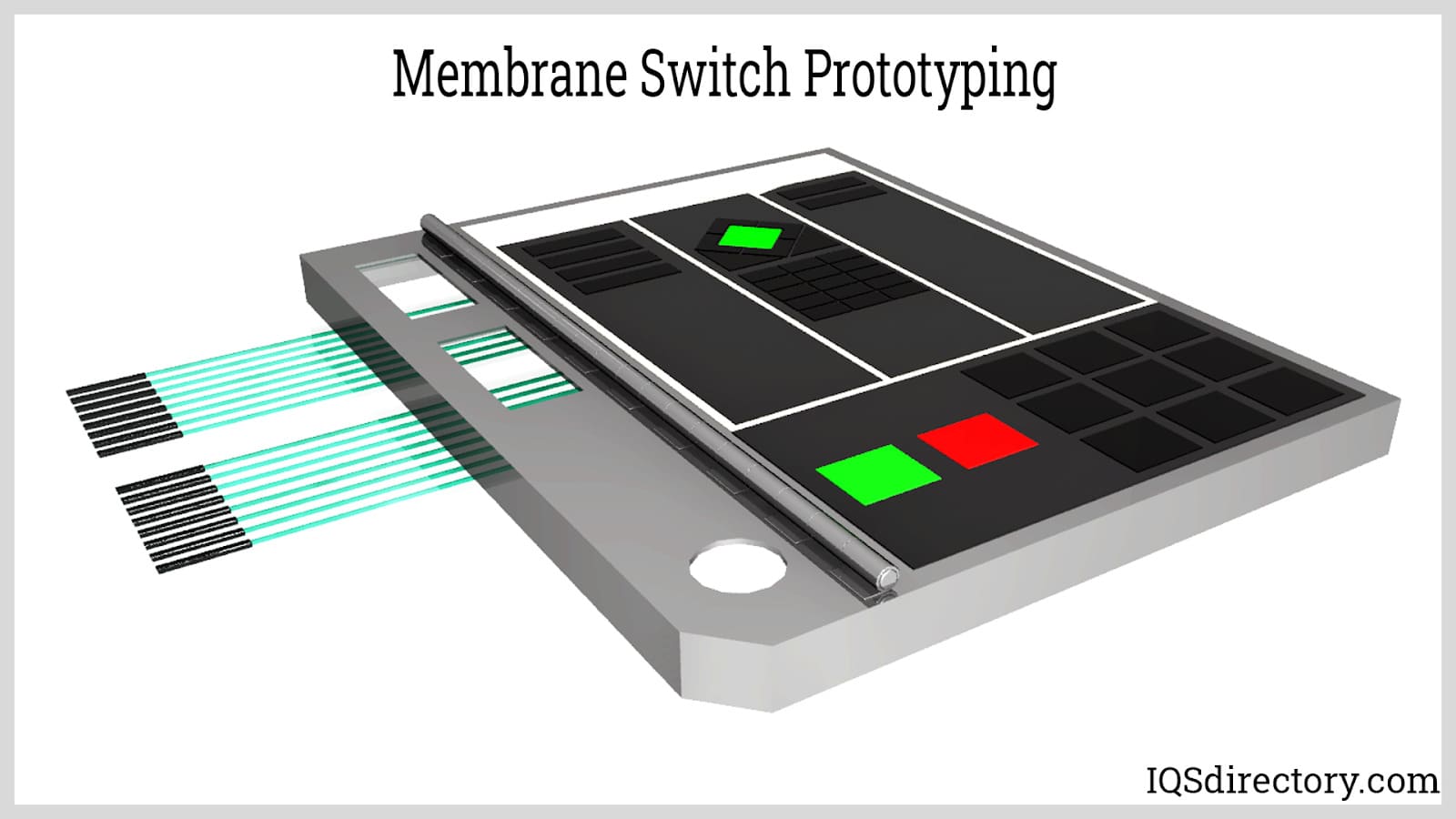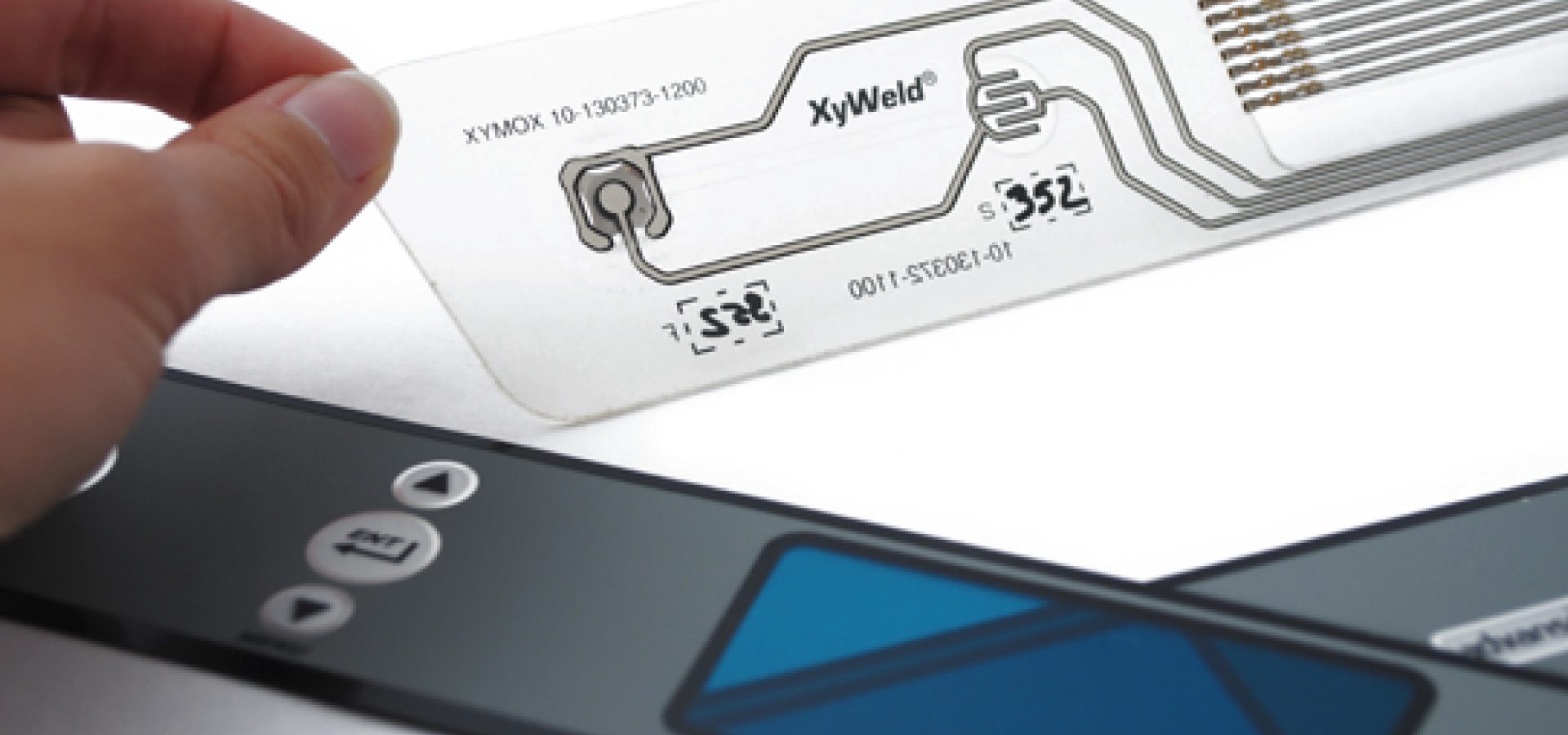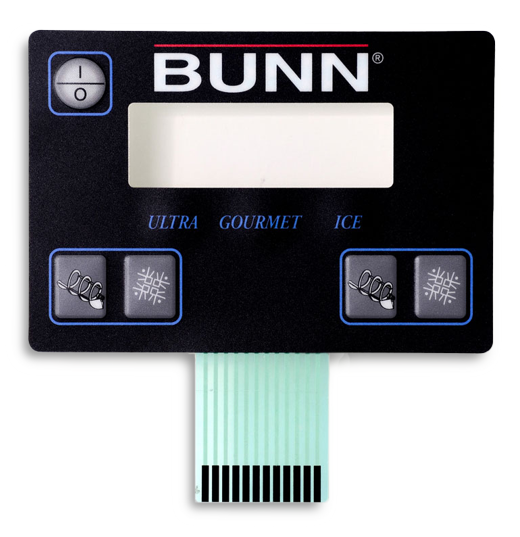Understanding the Value of Membrane Switches in Interface
Membrane buttons are essential elements in the layout of effective user interfaces, helping with not just functionality yet also improving visual appeal and user communication. Their distinct functions, such as resistance to ecological factors and personalized layouts, make them ideal for a varied variety of applications across numerous markets. As we discover the various advantages and future trends connected with Membrane innovation, it comes to be clear that these buttons are greater than simply components; they stand for a convergence of innovation and usefulness. The implications of this innovation on customer experience are worth checking out even more.
What Are Membrane Switches?

The spacer layer, which contains glue homes, enables the separation of the circuit layer from the overlay, making certain that the button remains in a non-activated state up until pushed. When stress is related to the overlay, it compresses the spacer layer, bridging the void and finishing the circuit in the underlying layer. This style not just lowers the physical room required for conventional mechanical buttons however also enhances the sturdiness of the tool, as Membrane buttons are typically resistant to dirt, dampness, and various other ecological factors.
Frequently discovered in applications ranging from customer electronic devices to medical gadgets, Membrane switches are essential to modern innovation, giving a straightforward and reliable user interface that straightens with contemporary style requirements.
Advantages of Membrane Buttons
While various button technologies exist, Membrane Switches deal distinctive advantages that make them especially preferable in numerous applications. Among the key benefits of Membrane buttons is their compact design, which enables space-saving implementations in tools where real estate is limited. Their slim profile not just enhances aesthetic charm yet also promotes light-weight construction.
One more considerable advantage is their resistance to ecological factors. Membrane switches are typically secured against moisture, dirt, and impurities, making them perfect for use sought after environments, such as clinical tools and commercial equipment. This toughness expands the life-span of the switch, reducing maintenance expenses and improving dependability.
Furthermore, Membrane switches can be tailored to meet specific design needs, including one-of-a-kind graphics and colors that improve user communication. Their tactile comments alternatives can also be customized to offer a gratifying customer experience. Additionally, Membrane switches are cost-effective, specifically in high-volume applications, as they can be generated successfully.
Applications in Numerous Industries

In the consumer electronic devices sector, Membrane switches are common in gadgets such as microwaves, washing devices, and push-button controls. Their responsive responses and aesthetic options improve user experience while giving a sleek, modern-day appearance. In addition, auto manufacturers utilize Membrane switches in control panel controls and infomercial systems, where space is limited, and customer involvement is vital.
In addition, the industrial industry leverages Membrane buttons in control panels for machinery and tools, allowing for instinctive operation in often harsh settings. Their resistance to chemicals and wetness makes certain durability and dependability in these applications. On the whole, the versatility of Membrane Switches adds substantially to their widespread use, making them important in numerous technological domain names.
Layout Factors To Consider for Membrane Buttons

When designing Membrane switches, a number of vital factors to consider should be taken into consideration to make sure ideal performance and user experience. Firstly, the selection of materials is crucial; choosing resilient, premium substratums can improve the button's long life and resistance to ecological aspects such as dampness and temperature level changes.
Secondly, the style of the visuals overlay ought to prioritize quality and simplicity of use. Symbols and text must be readable, and the layout needs to facilitate intuitive interaction (membrane switches). Furthermore, tactile comments is crucial; including a tactile dome or various other systems can boost the individual experience by providing physical confirmation of activation
One more crucial factor is the switch's electric performance. Designers have to make certain that the conductive traces are appropriately created to decrease resistance and stay clear of signal disturbance. This involves assessing the required actuation force and making certain compatibility with the electronic parts they will interface with.

Future Trends in Membrane Innovation
As innovation remains to advancement, Membrane switches are poised to progress substantially, driven by advancements in products and producing techniques. One emerging fad is the consolidation of sophisticated materials, such as why not find out more flexible substratums and conductive inks, which enhance longevity and minimize the overall weight of Membrane buttons. These products not only boost the tactile feedback however additionally enable the style of buttons that can endure harsher ecological problems.
Additionally, the assimilation of touch-sensitive modern technologies is transforming conventional Membrane Switches into more interactive interface. Capacitive touch sensing units embedded within Membrane button panels can offer an extra receptive and intuitive user experience, aligning with the growing need for streamlined, contemporary styles in customer electronic devices.
Additionally, developments in printing methods, such as electronic and 3D printing, allow rapid prototyping and personalization of Membrane buttons. This versatility permits makers to react quicker to market needs and customer choices.
Finally, sustainability is ending up being a substantial focus, with manufacturers exploring environmentally friendly materials and procedures. As these fads unravel, the future of Membrane innovation promises enhanced performance, visual charm, and environmental responsibility, solidifying their function in innovative user interfaces throughout different industries.
Conclusion
In final thought, Membrane Switches represent a vital element in the style of customer interfaces, combining capability with aesthetic flexibility. As advancements in modern technology proceed, the evolution of Membrane buttons is expected to further improve user interfaces, driving development and boosting usability in a significantly complicated technical landscape.
Membrane buttons are important elements in the layout of effective individual interfaces, helping with not just capability however likewise boosting visual allure and user interaction.Membrane Switches serve as a vital element in various user interfaces, assisting in a smooth interaction in between customers and electronic devices.While various button innovations exist, Membrane Switches deal distinctive advantages that make them especially preferable in various applications.In addition, Membrane switches can be personalized to fulfill specific style demands, including special graphics and colors that boost individual communication.In final thought, Membrane Switches represent an important component in the style of individual interfaces, integrating capability with aesthetic flexibility.